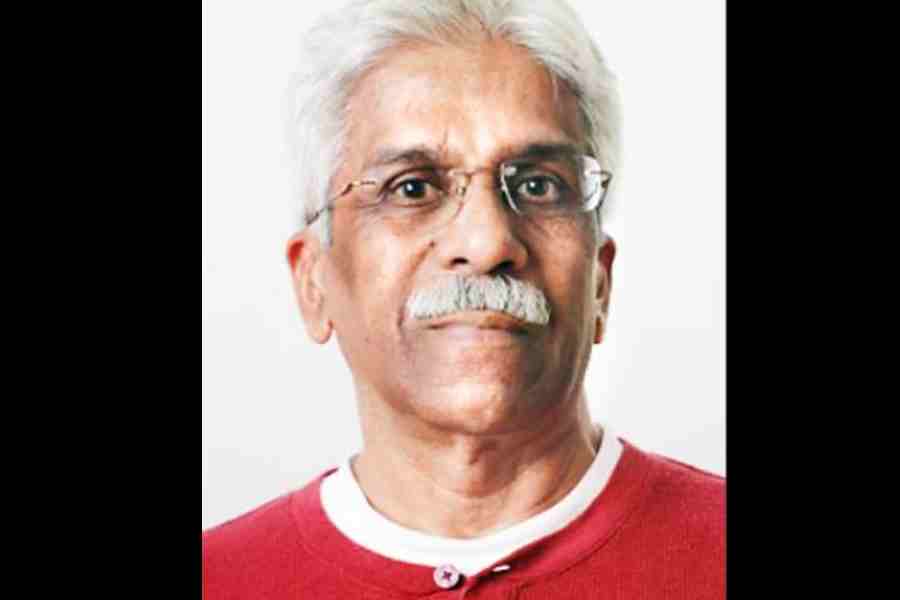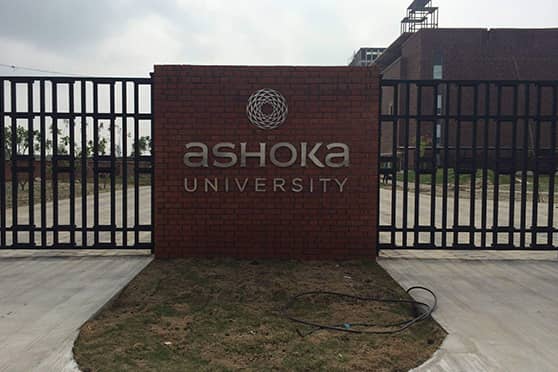An Ashoka University professor who resigned after a controversy erupted over the working paper by one of its faculty has spoken about his decision to step down.
“I can confirm that I have resigned,” Pulapre Balakrishnan, professor of economics at Ashoka University, told The Telegraph on Thursday.
News of Balakrishnan’s resignation broke soon after Ashoka vice-chancellor Somak Raychaudhury announced on Monday the acceptance of the resignation of assistant professor of economics Sabyasachi Das, whose unpublished paper on the 2019 general election result has found itself at the centre of a storm.
On Thursday, asked by this newspaper whether there was an inquiry into Das’s paper, Balakrishnan, who previously taught at Oxford and several other prestigious institutions, replied in the affirmative.
Asked if he was part of the inquiry, Balakrishnan replied: “No, I was not. No professor who respects academic freedom would be part of it.”
Balakrishnan is a globally recognised expert on inflation and productivity.
Das’s unpublished paper, “Democratic Backsliding in the World’s Largest Democracy”, uses mathematical tests to say that “the incumbent party in 2019 won a disproportionate share of closely contested elections”. Disclaimers in the paper — presented at the National Bureau of Economic Research in the US last month — include that these wins would not have changed the overall result of the Lok Sabha polls and that these tests were not proof of fraud.
After the paper became a topic of heated debate, especially between the Congress and the BJP, Ashoka University put out an unprecedented statement saying that “the paper in question has not yet completed a critical review process” and that social media activity or activism by Ashoka employees or students “does not reflect the stand of the University”.
On Wednesday, the Ashoka economics department issued a statement that gave the varsity’s governing body (G.B.) an ultimatum until August 23 to accept two demands: offer Das the job he quit, and that the G.B. stop evaluating faculty research. Else, teachers cannot “carry forward their teaching obligations”.
The departments of English, creative writing and political science have joined this call to stop work. Several other departments have also expressed solidarity with the economists.
The economics department’s statement suggested that the G.B. allegedly interfered in the “process to investigate the merits of his (Das’s) recent study” and that the economics department had participated in this probe by the G.B. — which the department has refused to do in future.
Working papers are made available to peers before they are submitted for publication in a peer-reviewed journal. The peer review process after the submission is supposed to test the methods, facts and thesis of a research paper. The pre-publication access to a working paper is to elicit views from peers to improve or correct a paper.
Beyond this, any examination, especially by those who are not peers — that is experts in the subject — is considered a breach of academic freedom, which many academics within and outside the university have highlighted.
Besides the chancellor and vice-chancellor (both are reputable academics), none of the G.B. members is an academic. The others are two founders of the varsity, who are entrepreneurs, and a Haryana government representative.
Why Das quit
A teacher at the university said: “At a faculty meeting yesterday (Wednesday), we got to know exactly what happened which made us all very unhappy. We were told that the G.B. formed a committee to inquire into Das’s paper. The members of the committee included an academic and a non-academic member of the G.B., a dean and a senior economics professor — who was asked to nominate three external faculty to the committee. Das said he won’t be part of all this and quit.”
The source confirmed that neither the head of the department, Ashwini Deshpande, nor Balakrishnan was part of this inquiry panel.
Another professor told this paper: “Some senior faculty asked Das to change the title of his paper, and suggested editing it to make his conclusions less prominent. He refused.”
VC Raychaudhury, Deshpande and Das have not responded to questions emailed by this newspaper.
On Tuesday, the VC agreed to a teachers’ demand for setting up a committee for academic freedom, which will function as a watchdog that aggrieved teachers and students could approach.
The VC said in an email to teachers and students: “As I stated in the meeting of the Academic Council yesterday, there is no need to appeal to us for the formation of the committee for academic freedom. As I understand, even though it was proposed by the Dean of Faculty several times over the last two years, the committee could not be formed, because no faculty member volunteered.
“I am happy that measures are now being taken to form this committee, and you have my full support to create it at the earliest, following the guidelines laid out in the Faculty handbook.”
Students’ demands
The Ashoka University Student Government called for a social media campaign to push for six demands: offer Das the job he quit, retraction of the varsity’s statement on his work, a probe into the violation of Das’s academic freedom, a meeting of the administration with all students to discuss what has happened, measures to “prevent future academic freedom violations” and reinstating the student body’s representation on the G.B.
Aisa stand
CPIML-Liberation’s student wing Aisa issued a statement in solidarity with Das.
It said: “The BJP-RSS have consistently attacked public universities and dismantled academic freedom through attacks on student activists, campaigns carrying out hate, dubious faculty appointments with faulty academic records, massive fund cuts, attacks on social justice in universities, deliberate dismantling of infrastructure, syllabus changes, among other attempts to make public universities sub-standard and stifle freedom of expression in these spaces.”











